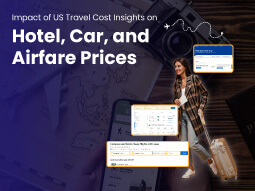How Web Scraping is Used to Extract Product Data from E-Commerce Sites?

Pricing strategy has long been a tried-and-true technique for increasing sales and strengthening brand loyalty. The effectiveness of this strategy is unsurprising, given that roughly 87 % believe that pricing is the most important consideration when making an online purchase. Moreover, 17% of the total said they compare prices from two or more stores before buying something.
Online retailers want to extract data from e-commerce websites to stay updated with the latest trends. However, because a huge amount of product information is often contained within web pages and items on the internet are quite dynamic.
However, in the current environment, the fierce competition between several e-commerce platforms has gone beyond price. It is now all about product data, which has an impact on everything from marketing strategy to managing inventory. The information gathered from different sources provides you with all of the weapons and equipment you'll need to win the e-commerce battles.
Let us learn how web scraping will extract product information from e-commerce websites.
Why Web Scraping is the Efficient Solution for Extracting Product Data from E-Commerce websites?
Your competitors could number in the tens of thousands, depending on the goods you want to sell. Humans cannot be assigned to the task of obtaining product information in bulk by cutting and pasting data from web pages. It not only depletes your bandwidth but also exposes your data to human mistakes. This is where web scraping comes into action.
Web scraping services is the technique of automated information extraction process to extract data more quickly and efficiently. It employs the usage of crawlers or robots to scan certain pages on a webpage and obtain useful information required.
In this situation, web scraping software will scan hundreds of items on an e-commerce site for your competitors' items and collect all essential information, such as price, number of variants, user reviews, and so on, in a couple of moments.
It also assists in the extraction of information that is not apparent to the human eye cannot be copied and pasted. Furthermore, it is capable of preserving the fetched information in a proper and readable format. The data extracted is available in CSV format.
Web scraping, as you'll see, can be very useful in extracting product data from e-commerce websites, regardless of how extensive the data is.
Ways to Scrape the Data from E-Commerce Websites
Extracting data with powerful methodologies or technical skills will take up a lot of your time, money, and even produce a problem that needs to be wiped up regularly. However, there are a few solutions to such issues. We could study the hidden rules of web pages before figuring out how to make them.
1. E-Commerce Data Format

Similar products may be shown in similar formats, which is why we create templates and use an auto-detection tool for our users' convenience.

2. E-Commerce URL format

A comparable rule can also be found on the Website. Many e-commerce websites have such tools, which allow users to just get data quickly by establishing a cycle or changing the URL. iWeb Scraping uses this to create template tasks (for example, Amazon) where your users may enter keywords and instantly have the e-commerce data they need.

Advantages of Scraping E-Commerce Sites for Businesses
1. Cost Optimization
The most important factor of data collection in scraping e-commerce websites is price optimization and comparison. This tool is used by everyone from eBay to Amazon to keep a record of competitor’s moves. It gathers information from a variety of resources and offers this to the company owner, who can then study price patterns and set a fair price for their goods. Price optimization is well-known for increasing e-commerce store earnings.
2. Generation of High-Quality Leads
Effective marketing is the foundation for a company's growth. However, for marketing activities to bear fruit, the company must create leads. Web harvesting may capture large amounts of data, which can then be used to generate more leads. With the use of surgical precision, it will generate more leads. Additionally, the data would be in CSV or similar formats, making it simple to handle and integrate with other applications.
3. Product Development and Launch
When you're introducing a new product on your e-commerce site, you'll need to do some market survey to figure out how much demand there is for it. You will always have questions that need to be answered. What do your competitors charge for their goods? What sort of offers do they have? Is there a certain time of year when demand spikes? Is there a specific demographic that they cater to?
You can design a near-perfect strategy for the said product based on deeper research of these aspects, without getting to go through the testing process. You will save a large amount of time that otherwise would have been spent studying and assessing the industry with this method.
4. Predicting Market Trends
When it comes to selling woolens throughout the winter, the market isn't always as black and white. E-commerce is changing at a rapid pace, and you must keep up. When it comes to closing deals, it's all about the time. Scraping e-commerce sites and tracking comparable or competitor goods over many months can reveal valuable information about research and business trends.
These data elements can assist you in determining the appropriate time and cost to launch a product. A magical combination of competitive prices or an introduction will boost sales.
Furthermore, you may successfully manage your product stock and stock-based on current or expected market trends.
5. Learn More About Customer
Web scraping can also be used to learn how clients feel about particular items, interests, decisions, and buying patterns. Customer input can help us to identify possible supply and demand gaps. Client data also paves the way for a better product line that resolves customer complaints.
At the very same time, you may deduce what a customer is searching for in a product based on how they leave reviews, what their preferences are, etc. Customer data also gives you a glimpse into the consumer's surroundings and behavior. As a result, you may customize your offerings to their specific needs.
How iWeb Scraping Service will Help E-Commerce Stores Scrape Product Data.
Extracting and using data from e-commerce sites may seem to be a challenging prospect, given the difficulties associated with web scraping. iWeb Scraping, on the other hand, allows you to effortlessly harvest product information from e-commerce sites to meet your needs!
iWeb Scraping assists you in using numerous techniques to circumvent website anti-scraping mechanisms and get the information you require. iWeb Scraping gets through anti-scraping systems in a variety of ways, including:
- Using home IP addresses that rotate
- Real-world user-agents
- Requests are sent at various intervals from different Servers.
- Trap detection and avoidance
- Captcha solution services are used to get around captchas.
- Keeping current with updates to the website
We specialize in data extraction at iWeb Scraping, and we can assist you with capturing product information on a huge scale.
Contact iWeb Scraping for all of your data extraction needs!




